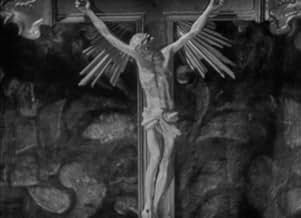IMDb RATING
7.5/10
1.6K
YOUR RATING
French soldier travels to Germany to find a family of a man he killed during World War I.French soldier travels to Germany to find a family of a man he killed during World War I.French soldier travels to Germany to find a family of a man he killed during World War I.
- Awards
- 2 wins & 1 nomination total
Rod McLennan
- War Veteran
- (as Rodney McLennon)
George Davis
- Concierge
- (uncredited)
Robert Dudley
- Townsman
- (uncredited)
Lillian Elliott
- Frau Bresslauer
- (uncredited)
Henry Fifer
- Townsman
- (uncredited)
Julia Swayne Gordon
- Townswoman
- (uncredited)
Featured review
Sandwiched as it is between his more usual fair (i.e. saucy operetta), Lubitsch's "Broken Lullaby" has not only been eclipsed, it has been forgotten. This is a crime.
While the subject matter is entirely serious, there are several "Lubitsch touches" that reveal the scope of the message behind "Broken Lullaby," particularly the sequence wherein the wives of the town open their windows to call to the neighbors, passing along a chain of gossip that follows the hero and heroine on their way home. Another brilliant community sequence involves the town elders gathered together to drink beer and pass judgment, which stops cold once Barrymore (who has made the Ftrench soldier a sort of surrogate son) joins them.
The plot of "Broken Lullaby" is doubly suspenseful: for the first half of the film, you wonder how Paul will reveal his secret to the Holderlin family; when he opts to follow a non-confrontational line of masquerade, the new suspense sets in as you wonder when he'll tell them the truth (or will they find out on their own?).
Phillips Holmes is strikingly handsome, and while his performance may seem too old school for modern eyes, he is completely honest as the soldier who is near-to-bursting with guilt (although remorse is a better way to put it). Lionel Barrymore should have received his Oscar nod for this film, and his speech to his peers at the inn is delivered with all the fire of a later Capra idealist. Only Nancy Carroll (so good in the same year's "Hot Saturday) seems out of place as Elsa: she is too American for this tale.
Brilliant details such as a glimpse of a military parade as seen from behind a soldier who has lost one leg, Barrymore adjusting the clock in his dead son's immaculately kept room (shrine?), and the many battle montages overlapping the opening church service culminate in the most understated, moving, and beautiful final moments of any film, one in which dialog is jettisoned in favor of two instruments joining to play one gorgeous song.
"Broken Lullaby" deserves restoration and a release on DVD immediately, not only for Lubitsch fans interested in seeing another side of the master's art, but also for those who embrace the ethos of acceptance and love.
While the subject matter is entirely serious, there are several "Lubitsch touches" that reveal the scope of the message behind "Broken Lullaby," particularly the sequence wherein the wives of the town open their windows to call to the neighbors, passing along a chain of gossip that follows the hero and heroine on their way home. Another brilliant community sequence involves the town elders gathered together to drink beer and pass judgment, which stops cold once Barrymore (who has made the Ftrench soldier a sort of surrogate son) joins them.
The plot of "Broken Lullaby" is doubly suspenseful: for the first half of the film, you wonder how Paul will reveal his secret to the Holderlin family; when he opts to follow a non-confrontational line of masquerade, the new suspense sets in as you wonder when he'll tell them the truth (or will they find out on their own?).
Phillips Holmes is strikingly handsome, and while his performance may seem too old school for modern eyes, he is completely honest as the soldier who is near-to-bursting with guilt (although remorse is a better way to put it). Lionel Barrymore should have received his Oscar nod for this film, and his speech to his peers at the inn is delivered with all the fire of a later Capra idealist. Only Nancy Carroll (so good in the same year's "Hot Saturday) seems out of place as Elsa: she is too American for this tale.
Brilliant details such as a glimpse of a military parade as seen from behind a soldier who has lost one leg, Barrymore adjusting the clock in his dead son's immaculately kept room (shrine?), and the many battle montages overlapping the opening church service culminate in the most understated, moving, and beautiful final moments of any film, one in which dialog is jettisoned in favor of two instruments joining to play one gorgeous song.
"Broken Lullaby" deserves restoration and a release on DVD immediately, not only for Lubitsch fans interested in seeing another side of the master's art, but also for those who embrace the ethos of acceptance and love.
- troubleclefmusic
- Jul 21, 2009
- Permalink
Storyline
Did you know
- TriviaThe family name of the German family whose son was killed is Holderlin, the name of the greatest Romantic idealist poet of Germany.
- ConnectionsRemade as Frantz (2016)
- How long is Broken Lullaby?Powered by Alexa
Details
- Release date
- Country of origin
- Languages
- Also known as
- Broken Lullaby
- Filming locations
- Production company
- See more company credits at IMDbPro
Box office
- Budget
- $889,154 (estimated)
- Runtime1 hour 16 minutes
- Color
- Aspect ratio
- 1.20 : 1
Contribute to this page
Suggest an edit or add missing content
































